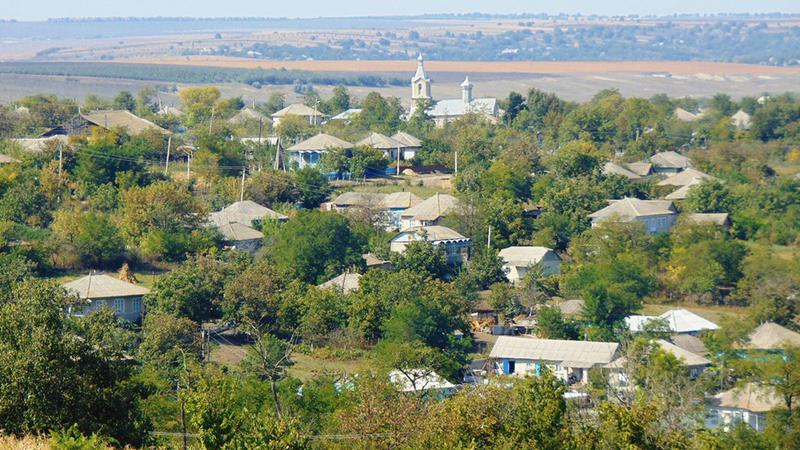
Speaker: Territorial-administrative reform must ensure services are as close to people as possible
The territorial-administrative reform must start from ensuring that services are as close to people as possible. Speaker Igor Grosu made the statement, saying that the authorities are expected to present the best solution for the implementation of the reform by early 2027.
Igor Grosu noted that the administrative reform was discussed in all the meetings he attended during the election campaign. According to him, the reform is inevitable, although it may seem unpopular.
‘I said in Parliament, we are there not only to receive thanks and praises, but to show that we are statesmen, and statesmen must also take on some unpopular policies. This is inevitable. Discussions about the reform were omnipresent throughout the election campaign, in all the meetings I had, there was not a meeting where I was not asked about the territorial-administrative reform, whether we are talking about villages, districts, district councils, this was constantly asked, and it was asked by mayors, councilors, citizens,’ the speaker said at the 'In Context' TV show.
The official specified that the authorities are expected to come up with a solution regarding the administrative reform by the beginning of 2027.
‘Now we have a limited time frame. It is 2027, which is the year of local elections; we have the timeframe until the beginning of 2027 to come up with an assumed political decision, to present the best solution, the most suitable variant, because there are different options,’ the official clarified.
According to him, useful experience in this regard was accumulated through the launch of the voluntary amalgamation process of localities; however, this is not sufficient.
‘We have good experience with voluntary amalgamation. The essence is good. We have what to learn from it, but it will take a very long time if we go only on this variant. There must be a mixed method for certain large localities, to give this discretion to the small ones, to act differently,’ Grosu opined.
An important aspect of implementing the reform is also that the eligibility criteria and access to European funds for communities in our country are much more demanding than those applied so far, and they start from the complexity of the project and the minimum population number that a locality must have.
‘The most unbeatable argument you cannot avoid: in the ‘European Village’ programs, we told local authorities - let's treat them as a readiness exercise, learning how to write projects, how to prepare to absorb and attract resources. The eligibility criteria and access to European funds for our communities are much more demanding, and they start from the complexity of the project and the minimum population number that a locality must have. So these are things we must aim for. They are not developed only for the Republic of Moldova. The Baltic States went through this; Poland went through this. We must go through this as well, inevitably,’ the speaker said.
Igor Grosu also added that the essence of the reform will be shaped following extensive debates, with the involvement of all interested actors, to identify the most appropriate solution.
‘We need to have these political decisions, honest debates, calmly, without speculations, as was with the school reform. Yes, the reform must start from the fact that services need to be as close to people as possible; this reform should not lead to distancing services, we need to ensure access roads, to make it easier to travel, services to be as much digitized as possible, so that you don't have to go to the district, as we say, or to a distant center, to obtain a document,’ Igor Grosu concluded.
The territorial-administrative reform involves reorganizing localities into larger administrative units (amalgamation), capable of managing more competences and financial resources. At the same time, districts are to be replaced by 8-10 regions with extended attributions and direct access to funds.
The changes are to be carried out gradually – through voluntary mergers, pilot projects, and subsequently, mandatory reorganizations.
Hybrid attacks and disinformation in electoral campaign under parliament's spotlight
Almost half of new Parliament's MPs serving first term
European Parliament President to visit Chisinau on November 6-7
Moldovan parliament speaker says country must have government as soon as possible, there is no time to lose
Moldovan government's acting secretary general says to work at maximum speed, European integration means benefits for citizens
Moldova's Ambassador to Ukraine ends diplomatic mission
Igor Grosu, re-elected as parliament speaker, calls on political parties to take responsible decisions for Moldova
LIVE TEXT // Moldova's parliament of 12th legislative period constituted: procedure to elect parliament speaker starts
Moldovan president invites parliamentary factions, groups to consultations to nominate candidate for PM office
Deputy PM for European integration meets new German Ambassador to Moldova
Moldovan president appoints Veronica Mihailov-Moraru as presidential advisor on justice
Moldovan national energy regulator extends application deadline for product facilitating gas transport to Ukraine
Moldova's General Police Inspectorate alerts about false messages sent via email in name of institution
Interim report on voluntary amalgamation in Moldova: first two territorial clusters successfully complete process
DOC // Veronica Mihailov-Moraru appointed as presidential advisor on justice in Moldova
VIDEO // Head of Balti-based territorial office of Pobeda Bloc detained in voters' corruption, illegal party financing, money laundering case
New record for air transport in Moldova: Chisinau-based Eugen Doga International Airport reaches figure of five million passengers
Moldovan energy minister inspects works at Chisinau Electric Station
DOC // Director of Moldova's National Anti-corruption Center awarded special rank of lieutenant general
Moldovan parliament speaker refers to possibility of lawyers' evaluation
Moldovan president awards state distinctions to more writers, literary critics
Average age of MPs in new Moldova's parliament 48 years
Moldova not to be affected by sanctions on Russian oil companies, speaker says
Record investments in infrastructure in recent years
President appoints Alexandru Munteanu as candidate for Prime Minister of Moldova

